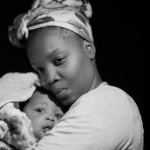The American College of Obstetricians and Gynecologists (ACOG) now recommends screening for perinatal depression, stating that “clinicians screen patients at least once during the perinatal period for depression and anxiety symptoms using a standard, validated tool.” Having the backing of ACOG is certainly a big step in the right direction, but as we move toward universal screening, we must make sure that screening is seamlessly connected to follow-up and treatment.
Despite increased interest in and awareness of perinatal mood and anxiety disorders, most women with perinatal depression, including those identified through screening in obstetric practices, do not get appropriate treatment for their symptoms. According to a recent review conducted by Dr. Nancy Byatt and colleagues, on average, only 22% (13.8-33.0%) of women who screened positive for depression received at least one mental health visit. There are multiple barriers to obtaining treatment including stigma, limited access to specialized treatment, and cost.
In the United States, there are a number of mother–baby perinatal mental health day treatment programs which have been designed to address the needs of this vulnerable population. These programs offer numerous advantages over traditional outpatient or inpatient treatment. In this setting, women have access to mental health providers with expertise in the treatment of pregnant and postpartum women.
These interdisciplinary programs can help to normalize and destigmatize perinatal psychiatric illness. Providing these services within or near existing prenatal clinics or obstetrical hospital settings can help to reduce geographic and logistical barriers to care. Furthermore, the co-location of obstetric and mental health services sends the message that attending to one’s mental health is part of the obstetrical continuum of care.
Group interventions in mother–baby programs offer women the opportunity to engage with other expectant or new mothers which can further help to decrease social isolation, feelings of shame, and stigma. Within this structured setting, women may benefit from peer support, psychoeducation, skills training, and role-modeling.
The intensive, supervised nature of these mother-baby programs may help to prevent more restrictive inpatient hospitalization and can also serve as a step-down program from inpatient hospitalization for women with more severe psychiatric illness. Because mothers attend these programs with their infants, disruption to breastfeeding and bonding can be minimized. Direct observation of the mother in group settings and with her baby can provide valuable information with regard to her level of functioning and can help to identify the need for additional supports.
Mother–baby programs designed to treat perinatal psychiatric illness have increased in number over the last 50 years; however, we still do not have enough programs in the United States. According to the most recent information from Postpartum Support International, there are 22 intensive outpatient programs and two inpatient mother-baby units (UNC and Northwell Health in NY) in the United States (listed below).
Intensive Outpatient Programs in the United States
| CA | El Camino Hospital Maternal Outreach Mood Services (MOMS), Mountain View |
| CA | Huntington Memorial Hospital Maternal Wellness Program, Pasadena |
| CA | UC San Diego Maternal Mental Health Program, San Diego |
| CA | Hoag Hospital Maternal Mental Health Clinic, Newport Beach |
| CA | UCLA Maternal Mental Health Program, Los Angeles |
| FL | Better Beginnings Mommy & Baby Day Program, Gainesville |
| IL | AMITA Health Perinatal IOP, Alexian Brothers Women & Children’s Hospital, Hoffman Estates |
| MI | Pine Rest Mother and Baby Program, Grand Rapids |
| MN | PrairieCare Perinatal Intensive Outpatient Program, Brooklyn Park |
| MN | Nystrom & Associates, Mother Baby Intensive Outpatient Program, Eden Prairie |
| MN | Hennepin Healthcare, Mother-Baby Perinatal Outpatient Program (POP), Minneapolis |
| MO | Mercy Birthplace Mother–Baby Intensive Outpatient Program |
| NC | Perinatal Psychiatry Inpatient Unit, Chapel Hill |
| NJ | Monmouth Medical Center Perinatal Mood & Anxiety Disorders Program, Long Branch |
| NY | Northwell Health Perinatal Psychiatry Service |
| NY | The Motherhood Center of New York, NYC |
| NY | Perinatal Psychiatry Services at Zucker Hillside Hospital & South Oaks Hospital, Queens & Long Island |
| PA | Drexel University Mother Baby Connections Program, Philadelphia |
| PA | Alexis Joy D’Achille Center for Women’s Behavioral Health at West Penn Hospital, Pittsburgh |
| RI | The Day Hospital, Brown/Women & Infants, Providence |
| UT | Reach Counseling, South Jordan |
| UT | Serenity Recovery and Wellness, Riverton |
| UT | St. Marks Outpatient Perinatal Program, Salt Lake City |
| WA | Swedish Perinatal Center for Perinatal Bonding and Support, Seattle |
Compared to treatment in a primary care setting, the treatment delivered by the outpatient mother-baby program is more effective than routine care. In one study, at six months follow-up, 21 of 30 women (70%) who participated in an intensive outpatient mother-baby program were no longer depressed, compared to 7 of 30 women (23%) receiving routine primary care (Boath et al, 1999).
But is it cost-effective?
So much of what we do in medicine today comes down to how much treatment costs. What’s the bottom line? Intensive day treatment programs are clearly less expensive than inpatient psychiatric hospitalization (about half the cost). However, many of the benefits of this type of treatment are hard to quantify and may unfold over the lifetime of the child.
Maternal psychiatric illness is associated with a constellation of problems in exposed children, including increased risk of behavioral problems, delays in cognitive development, lower IQ, poor school performance, and psychiatric illness including ADHD, anxiety disorders, and depression. While early intervention and more aggressive treatment of perinatal psychiatric illness may reduce the likelihood of these adverse outcomes, it will require a concerted effort on the part of mental health providers, obstetricians, pediatricians, health insurance providers and policy makers to make mental health treatment, including mother-baby mental health programs, more available to vulnerable women.
Ruta Nonacs, MD PhD
Battle CL, Howard MM. A mother-baby psychiatric day hospital: History, rationale, and why perinatal mental health is important for obstetric medicine. Obstet Med. 2014 Jun;7(2):66-70. Free Article
Boath E, Cox J, Lewis M, Jones P, Pryce A. When the cradle falls: the treatment of postnatal depression in a psychiatric day hospital compared with routine primary care. J Affect Disord. 1999 May;53(2):143-51.
Boath E, Major K, Cox J. When the cradle falls II: The cost-effectiveness of treating postnatal depression in a psychiatric day hospital compared with routine primary care. J Affect Disord. 2003 Apr;74(2):159-66.
Christl B, Reilly N, Yin C, Austin MP. Clinical profile and outcomes of women admitted to a psychiatric mother-baby unit. Arch Womens Ment Health. 2015 Dec;18(6):805-16.
Cazas O, Glangeaud-Freudenthal NM. The history of Mother-Baby Units (MBUs) in France and Belgium and of the French version of the Marcé checklist. Arch Womens Ment Health. 2004 Feb;7(1):53-8. Free Article
Geller PA, Posmontier B, Horowitz JA, Bonacquisti A, Chiarello LA. Introducing Mother Baby Connections: a model of intensive perinatal mental health outpatient programming. J Behav Med. 2018 Oct;41(5):600-613.







Leave A Comment